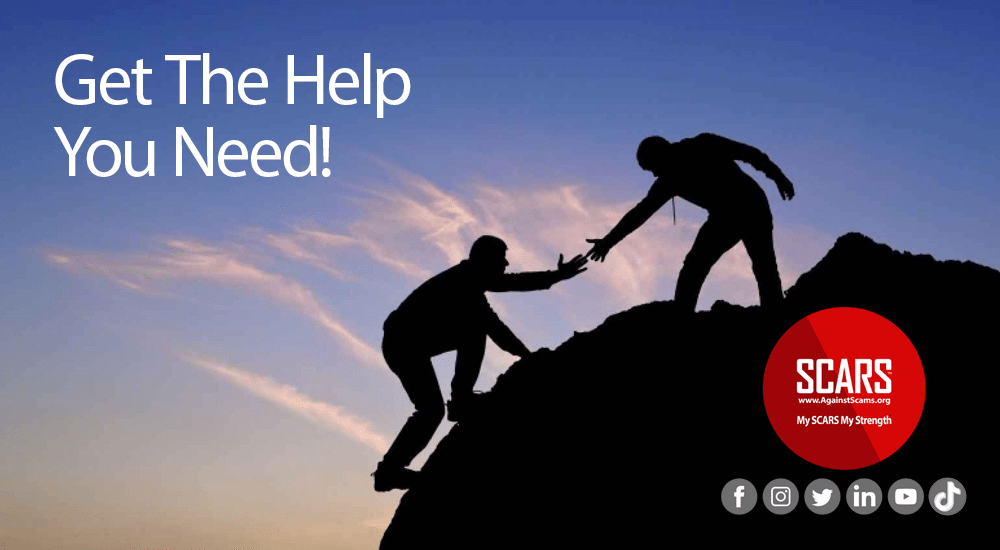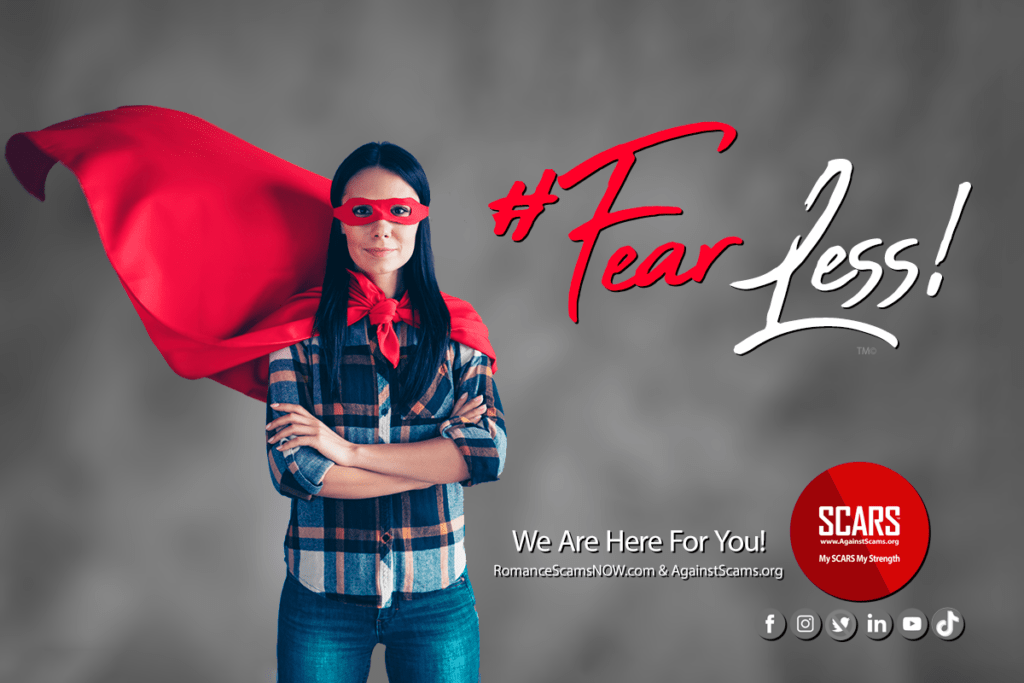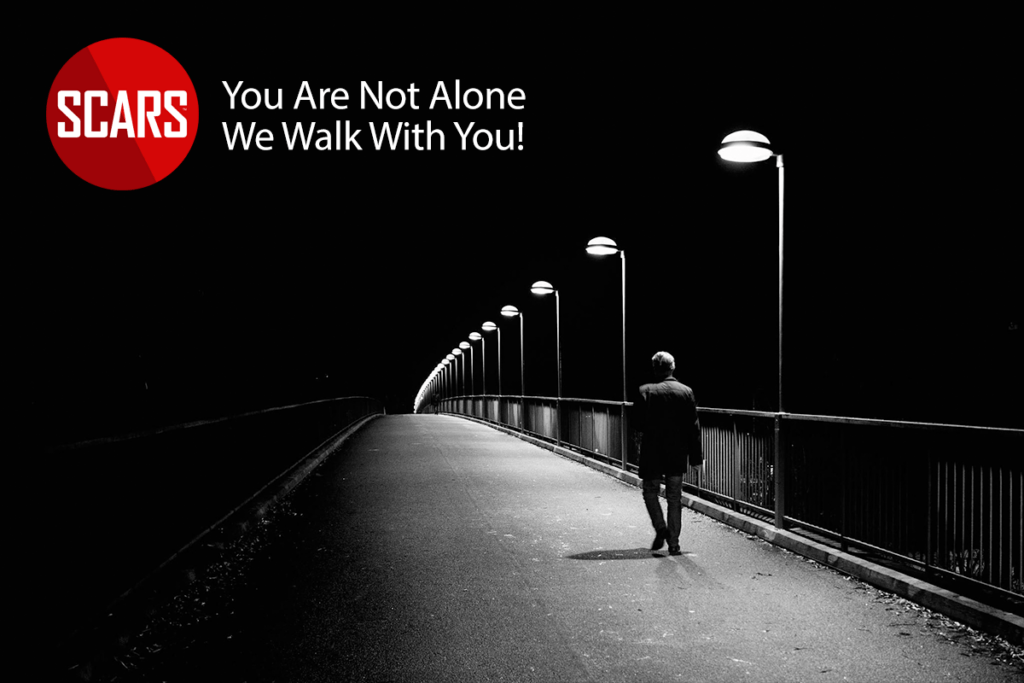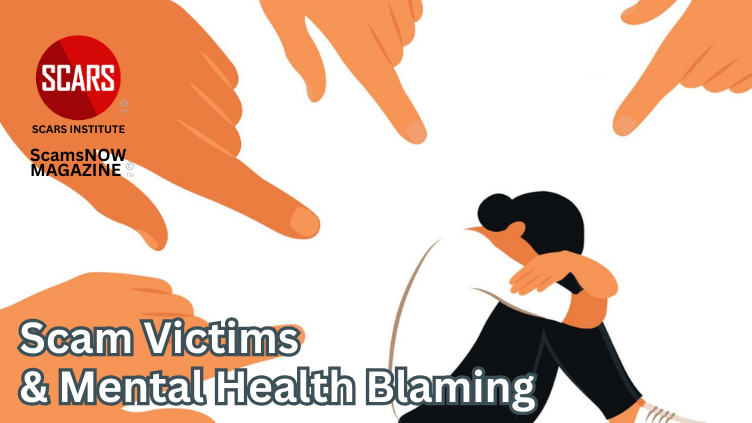Scam Victims & Mental Health Blaming
By Tim McGuinness, Ph.D. – Anthropologist, Scientist, Director of the Society of Citizens Against Relationship Scams Inc.
About This Article
Mental health blaming is a harmful and pervasive issue that undermines scam victims’ recovery, reinforcing feelings of shame, guilt, and isolation. Many people dismiss the struggles of those suffering from depression, anxiety, and trauma-related disorders, failing to recognize that these are legitimate mental health conditions rather than signs of weakness or laziness. Scam victims, in particular, face intense emotional distress after being manipulated and betrayed, yet they are often met with judgment rather than support. Family, friends, employers, and even the media frequently minimize their trauma, making it harder for them to seek help.
Blaming victims for their emotional responses only deepens their suffering and discourages them from accessing the professional care they need. Instead of reinforcing stigma, society must adopt a more compassionate and informed approach, acknowledging that scam-related trauma is real and requires proper support. Encouraging therapy, fostering safe spaces for healing, and challenging harmful narratives about mental health can help victims rebuild their confidence and recover from their experiences. By replacing blame with understanding, we create an environment where healing is possible, allowing scam victims to regain their sense of self and move forward with resilience.

Mental Health Blaming For Scam Victims Is An Insidious Undermining Of Those Struggling To Heal And Recover
Let’s be clear, we are not talking about mental health conditions such as psychopathy or narcissism. We are talking about the vastly common depression and anxiety disorders that may affect as many as half of our population and other debilitating disorders that prevent normal people from living their best lives.
This commentary was triggered by a post I saw today on LinkedIn, that said “Laziness is disrespectful to those that believe in them!” What bullshit!
Laziness, as the author was talking about is mostly the manifestation of depression and anxiety disorders. When people can’t get out of their bed, clean their house, or even bathe regularly, it is NOT laziness, it is a mental health issue and needs to be treated not shamed and blamed. Yet this is what so-called functional people do.
In the world of scam victims, we see this blaming all the time with family, friends, employers, police & government, and all too often in the new media that are ignorant of the impact that trauma has on scam victims. Such blame and shame only make it that much harder for those suffering to get the help they need out of fear of judgment.
A few years ago I probably reflected this attitude myself, but as I really began to work with traumatized crime victims it became obvious that there was more at work than society’s attitudes of intolerance. I am proud to say that a decade ago, my perceptions changed and it led to a commitment to discovering the underlying psychological issues that affect scam (crime) victims both before, during, and after the fraud they have experienced. It led me to certifications in trauma-informed care, grief counseling, and the continuous exploration of the psychology of scams and to recovery psychology.
As a scientist in multiple disciplines, I have studied numerous aspects of the dynamics of the scam victim experience. From anthropology to sociology to criminology to victimology and psychology. This study has become a central driver in my own studies, striving to find ways to better help cam victims and deliver services to meet their needs – not always successfully – but the commitment remains.
One of the SCARS Board Members, Ms. Vianey Gonzalez, likewise has been on a similar journey, going so far as to return to university and obtain a master’s in psychology, which we are proud to say she will complete in a couple of months, As a scam victim herself, she will be best able to fully understand that experience and develop programs to help these victims.
While SCARS is not a mental healthcare provider, we have partnered with several organizations to deliver information and referrals to scam victims in need. One of them is BetterHelp.com which has turned out to be a great resource for those victims that have used its services – either through our SCARS membership to provide a free month of counseling/therapy or directly. Their therapists have so far been excellent.
I cannot say this enough, that scams traumatize their victims and the combination of SCARS Support Groups and Trauma Therapy is the answer for those victims willing to commit to their recovery! Every victim that we know that has gone through our groups and committed to our program in concert with trauma counseling has recovered well. This is the core of our approach to scam victim recovery.
However, the pervasive blaming of victims is everywhere.
And to be honest, sometimes it is frustrating to work with people that cannot help themselves. But we continue to do all we can regardless unless the consequences of their behavior make it impossible.
Stop The Blaming
Blaming individuals who are suffering from depression and anxiety, or even trauma, is not only ineffective but also detrimental to their recovery and well-being.
Here’s why blame is unhelpful and the potential harms it can cause:
Lack of Understanding
Blaming individuals with depression and anxiety often stems from a lack of understanding about these mental health conditions, and in the case of scam victims – about the psychological impact of these crimes. It fails to recognize that depression and anxiety are complex disorders influenced by a combination of biological, psychological, and environmental factors. Blaming perpetuates misconceptions and stigmatizes individuals, hindering empathy and support.
Invalidating Experiences
Blame dismisses and invalidates the experiences of those with depression and anxiety. It undermines their struggle, minimizing the severity of their symptoms and the impact these conditions have on their daily lives. Invalidating their experiences can worsen feelings of isolation, shame, and self-doubt, impeding their ability to seek help and engage in effective coping strategies.
Reinforcing Self-Stigma
Blaming individuals with depression and anxiety can reinforce self-stigma, wherein they internalize negative beliefs about themselves – blame, shame, and guilt. They may internalize the blame, believing they are at fault for their mental health struggles. This self-blame exacerbates feelings of guilt, shame, and low self-esteem, making it even harder for them to seek help or engage in self-care.
Hindering Help-Seeking Behavior
Blame can discourage individuals from seeking help or reaching out for support. Fear of judgment or further blame may prevent them from seeking professional help, confiding in friends or family, or accessing appropriate treatment. This delay in seeking support can exacerbate symptoms and prolong their recovery process.
Impact on Treatment Adherence
Blaming individuals with depression and anxiety can negatively impact their treatment adherence. When blame is internalized, it can erode their motivation to engage in therapy, take prescribed medications, or participate in self-care practices. This lack of engagement hampers their progress and may contribute to a worsening of symptoms.
Increased Social Isolation
Blame can lead to social isolation as individuals may withdraw from social interactions to avoid judgment or criticism. Social support is a crucial factor in recovery, and isolation can exacerbate feelings of loneliness and contribute to a worsening of mental health symptoms.
Supporting Those with Depression and Anxiety
Instead of blaming, it is essential to adopt a compassionate and understanding approach to support individuals with depression and anxiety.
Here are some alternative approaches:
Educate Yourself/Them
Seek information about depression and anxiety to better understand the nature of these conditions, including their causes, symptoms, and available treatment options. This knowledge can foster empathy and help dispel misconceptions.
Offer Empathy and Validation
Listen without judgment and validate their experiences. Show empathy and understanding, acknowledging that their feelings are real and valid. Provide a safe space for them to express their emotions and concerns without fear of blame or criticism.
Encourage Professional Help
Encourage individuals to seek professional support from mental health professionals. Offer to assist them in finding suitable resources or accompany them to appointments, if they feel comfortable. Resources are available at counseling.AgainstScams.org
Be Supportive
Offer consistent support by checking in regularly, asking how they are doing, and offering a listening ear. Express your willingness to be there for them and provide reassurance that they are not alone in their journey. SCARS also offers free support groups – to sign up visit support.AgainstScams.org
Promote Self-Care
Encourage the practice of self-care activities such as exercise, relaxation techniques, and engaging in hobbies. Offer to participate in these activities together to provide additional support and motivation.
Foster a Safe Environment
Create an environment where individuals feel safe to share their struggles openly. Avoid blaming language or making assumptions about their experiences. Instead, emphasize their strength and resilience in navigating their challenges.
But Remember Boundaries
When you are trying to help another person it is important that you understand your own boundaries and those that the person that needs help should have as well. Having a mental disorder is not an excuse for anything they do. It is important to understand when and where someone offering help needs to withdraw.
Be As Compassionate As You Can Be
By adopting a compassionate and understanding approach, we can foster an environment that supports the recovery and well-being of individuals with depression and anxiety. Together, we can break down the stigma surrounding mental health and create a more inclusive and supportive society.
How Others Blame Victims With Mental Health Issues
People blame those suffering from depression and anxiety in a number of ways, both directly and indirectly.
Some common examples include:
- Telling them to “just cheer up” or “snap out of it.” This minimizes the severity of their condition and implies that they are simply choosing to be unhappy.
- Telling them that their problems are not real or that they are not “sick enough” to need help. This can make people feel isolated and alone, and it can discourage them from seeking treatment.
- Criticizing them for their symptoms, such as their lack of energy, difficulty concentrating, or social withdrawal. This can make people feel ashamed and guilty, and it can make their symptoms worse.
- Telling them that they are “lazy” or “weak” for not being able to “handle” their problems. This can damage their self-esteem and make it more difficult for them to cope with their condition.
- Expecting them to act “normal” and to not need any help. This can put a lot of pressure on people and make it difficult for them to open up about their struggles.
It is important to remember that depression and anxiety are real and serious mental illnesses – they are not someone’s fault – they are no different than an infection, and they need to be treated so the person can heal.
They are not caused by weakness or laziness, and they cannot be “cured” by simply “snapping out of it.”
If you or someone you know is struggling with depression or anxiety, please reach out for help. There are many resources available, including therapy, medication, and support groups. Tell them (and mean it) that they are not alone.
More:
- Understanding Scam Victim Blaming Language [VIDEO] https://youtu.be/K2NTofyH2Co
- SCARS Webinar: Victim Blaming & Hate – June 25, 2022 [VIDEO] (romancescamsnow.com)
- The Subtle Art of Blaming the Victim | Psychology Today United Kingdom
- RSN™ Guide: Victim Bashing or Blaming (romancescamsnow.com)
- Impact of Crime Victimization (romancescamsnow.com)
- SCARS Banned Terms Words & Phrases (romancescamsnow.com)
- Why People Blame Victims? (romancescamsnow.com)
- Do Not Blame Yourself – A SCARS™ Guest Editorial By Michele Difalco (romancescamsnow.com)



Please Rate This Article
Please Leave Us Your Comment
Also, tell us of any topics we might have missed.
Leave a Reply
Thank you for your comment. You may receive an email to follow up. We never share your data with marketers.
-/ 30 /-
What do you think about this?
Please share your thoughts in a comment above!
-/ 30 /-
What do you think about this?
Please share your thoughts in a comment above!
ARTICLE RATING
TABLE OF CONTENTS
CATEGORIES
MOST POPULAR COMMENTED ARTICLES
POPULAR ARTICLES
U.S. & Canada Suicide Lifeline 988
![NavyLogo@4x-81[1]](https://scamsnow.com/wp-content/uploads/2025/04/NavyLogo@4x-811.png)
ARTICLE META
WHAT PEOPLE ARE TALKING ABOUT LATEST SITE COMMENTS
See Comments for this Article at the Bottom of the Page
on The SCARS Institute Scam Victim Recovery Timeline – 2025: “Wow. I umm experienced some of the later curves. I have been bouncing back and forth between asking myself why…” Jul 11, 00:01
on Transference And Emotional Danger After The Scam – 2024: “Thank you for the kind but firm reminder that the person in the stolen profile photo has their own life.…” Jul 9, 01:26
on ‘Mental Defeat’ – The Unique Condition Of Giving Up – 2024: “Thank you for another great article. I can see from this article that mental defeat would be debilitating to a…” Jul 9, 00:49
on Trust: Romance Scams Betrayal And Scam Victims – 2024: “This provided valuable insight that I can identify with” Jul 8, 16:44
on A Scam Victim in Extreme Distress – Stopping the Pain – 2024: “Your trust issues are very understandable. We are very sorry this happened to you. We suggest that you contact an…” Jul 8, 14:42
on A Scam Victim in Extreme Distress – Stopping the Pain – 2024: “My online counselors advised me to check myself in. I went to the hospital because I was suicidal. After I…” Jul 8, 13:44
on Scam Victim Catastrophizing Making Recovery Difficult 2024: “Excellent article on catastrophizing. I can understand how this could take a person down a rabbit warren of never ending…” Jul 8, 12:12
on The Self-Pity Trap & How To Overcome It – 2023 – [UPDATED 2025]: “I am not in the habit of feeling sorry for myself. After the deception, although it was not easy at…” Jul 8, 11:49
on Pride – A Dual Edged Sword For Scam Victims – 2023 [UPDATD 2024]: “Looking back over my life I have seen how pride has impacted me both positively and negatively. However the negative…” Jul 8, 09:08
on The Self-Pity Trap & How To Overcome It – 2023 – [UPDATED 2025]: “I felt self-pity while the enormity of my financial loss washed over me like a tsunami. The self-pity lasted only…” Jul 7, 18:55
on The Uniqueness Of Scam Victims Or Fraud Victims – 2024: “unfortunately all true. It is highly stressful dealing with the aftermath. I am being sued for the money I borrowed…” Jul 6, 12:50
on Scam Victims & Mental Health Blaming – 2023 [UPDATED 2025]: “For most of my life words have defeated me, made me feel insignificant, unwanted, unneeded. For this reason it is…” Jul 5, 13:36
on Substance Abuse Susceptibility And Scam Victims – 2024: “It is understandable how some would feel that alcohol or substance abuse would be helpful in handling their feelings after…” Jul 1, 20:36
on Scam Victims Use Work To Avoid Healing: “The last 6 years have been the most difficult of my life. The pandemic, having both parents in the hospital…” Jun 29, 18:38
on Entitlement Mentality And How Scam Victims Often Lose Their Path To Recovery – 2024: “Thank you for this discussion of entitlement. I can see from the descriptions listed that I have not felt entitlement.…” Jun 29, 18:22
on Samurai Wisdom and Rituals for Clearing the Mind After Scam Trauma – 2025 – [VIDEOS]: “A great guide on how to move forward in our recovery process with a calm mind, cleansed on an ongoing…” Jun 28, 07:34
on Delayed Gratification and Patience in Scam Victim Recovery – 2025 – [VIDEOS]: “We want to recover quickly and… we make new mistakes. How not to speed up the recovery process, how to…” Jun 28, 06:41
on The Unique Injury Of Betrayal Trauma On Scam Victims – 2024: “Primarily because you did not see it coming” Jun 27, 23:57
on Changes In A Scam Victim’s Life: “I really detest the way my trust in others has been affected by the scamming I went through. I used…” Jun 27, 14:47
Important Information for New Scam Victims
Please visit www.ScamVictimsSupport.org – a SCARS Website for New Scam Victims & Sextortion Victims
SCARS Institute now offers a free recovery program at www.SCARSeducation.org
Please visit www.ScamPsychology.org – to more fully understand the psychological concepts involved in scams and scam victim recovery
If you are looking for local trauma counselors, please visit counseling.AgainstScams.org
If you need to speak with someone now, you can dial 988 or find phone numbers for crisis hotlines all around the world here: www.opencounseling.com/suicide-hotlines
Statement About Victim Blaming
Some of our articles discuss various aspects of victims. This is both about better understanding victims (the science of victimology) and their behaviors and psychology. This helps us to educate victims/survivors about why these crimes happened and not to blame themselves, better develop recovery programs, and help victims avoid scams in the future. At times, this may sound like blaming the victim, but it does not blame scam victims; we are simply explaining the hows and whys of the experience victims have.
These articles, about the Psychology of Scams or Victim Psychology – meaning that all humans have psychological or cognitive characteristics in common that can either be exploited or work against us – help us all to understand the unique challenges victims face before, during, and after scams, fraud, or cybercrimes. These sometimes talk about some of the vulnerabilities the scammers exploit. Victims rarely have control of them or are even aware of them, until something like a scam happens, and then they can learn how their mind works and how to overcome these mechanisms.
Articles like these help victims and others understand these processes and how to help prevent them from being exploited again or to help them recover more easily by understanding their post-scam behaviors. Learn more about the Psychology of Scams at www.ScamPsychology.org
SCARS INSTITUTE RESOURCES:
If You Have Been Victimized By A Scam Or Cybercrime
♦ If you are a victim of scams, go to www.ScamVictimsSupport.org for real knowledge and help
♦ Enroll in SCARS Scam Survivor’s School now at www.SCARSeducation.org
♦ To report criminals, visit https://reporting.AgainstScams.org – we will NEVER give your data to money recovery companies like some do!
♦ Follow us and find our podcasts, webinars, and helpful videos on YouTube: https://www.youtube.com/@RomancescamsNowcom
♦ Learn about the Psychology of Scams at www.ScamPsychology.org
♦ Dig deeper into the reality of scams, fraud, and cybercrime at www.ScamsNOW.com and www.RomanceScamsNOW.com
♦ Scam Survivor’s Stories: www.ScamSurvivorStories.org
♦ For Scam Victim Advocates visit www.ScamVictimsAdvocates.org
♦ See more scammer photos on www.ScammerPhotos.com
You can also find the SCARS Institute on Facebook, Instagram, X, LinkedIn, and TruthSocial
Psychology Disclaimer:
All articles about psychology and the human brain on this website are for information & education only
The information provided in this and other SCARS articles are intended for educational and self-help purposes only and should not be construed as a substitute for professional therapy or counseling.
Note about Mindfulness: Mindfulness practices have the potential to create psychological distress for some individuals. Please consult a mental health professional or experienced meditation instructor for guidance should you encounter difficulties.
While any self-help techniques outlined herein may be beneficial for scam victims seeking to recover from their experience and move towards recovery, it is important to consult with a qualified mental health professional before initiating any course of action. Each individual’s experience and needs are unique, and what works for one person may not be suitable for another.
Additionally, any approach may not be appropriate for individuals with certain pre-existing mental health conditions or trauma histories. It is advisable to seek guidance from a licensed therapist or counselor who can provide personalized support, guidance, and treatment tailored to your specific needs.
If you are experiencing significant distress or emotional difficulties related to a scam or other traumatic event, please consult your doctor or mental health provider for appropriate care and support.
Also read our SCARS Institute Statement about Professional Care for Scam Victims – click here
If you are in crisis, feeling desperate, or in despair, please call 988 or your local crisis hotline.
More ScamsNOW.com Articles
A Question of Trust
At the SCARS Institute, we invite you to do your own research on the topics we speak about and publish. Our team investigates the subject being discussed, especially when it comes to understanding the scam victims-survivors’ experience. You can do Google searches, but in many cases, you will have to wade through scientific papers and studies. However, remember that biases and perspectives matter and influence the outcome. Regardless, we encourage you to explore these topics as thoroughly as you can for your own awareness.
















![scars-institute[1]](https://scamsnow.com/wp-content/uploads/2025/04/scars-institute1.png)
![niprc1.png1_-150×1501-1[1]](https://scamsnow.com/wp-content/uploads/2025/04/niprc1.png1_-150x1501-11.webp)

For most of my life words have defeated me, made me feel insignificant, unwanted, unneeded. For this reason it is so important to understand how something we think is insignificant is, for another, monumental. That words can make another take a drastic risk, feel ashamed or guilty, stop them seeking support, feel unwanted, undesirable. We all have a responsibility to be more understanding of others. We can see people passing us by each and every day and not have a clue what is happening to them. They could be in danger, enthralled in a scam, feeling unworthy, wanting to die.
Good article, thank you! I wish more people felt this way. I am feeling very isolated, unable to feel safe with other people just now.
This is normal and valid. With establishment of boundaries you can build trust again later.
I agree that when you don’t know the complexity of scams and their effects in the victims is what gives you a wrong idea of them. I myself before and even after the scam had an incorrect perception and lack of knowledge of scams and scam victims (blaming them and so on). It wasn’t until I started learning about scams and their effects through SCARS that I changed my perception. Everyone, victims and non-victims should educate themselves about scams, either to prevent being victimized, to be able to recover or to support victims.
Being careful and selective in where to seek support for my recovery journey is very important. Negative reinforcements as a form of support can contribute more trauma for the victim and complicate the recovery process.
This article reminds me of the difficulty people have talking with people with cancer (as a cancer survivor I should know). Most people have no clue how to relate, say stupid stuff or just avoid conversation all together.
Excellent article. Must be read by every individual on this planet. This world needs to be educated to be compassionate and not to blame others.